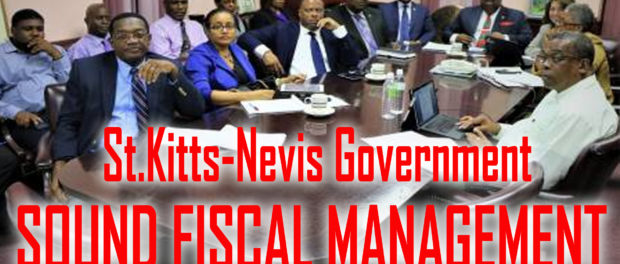ST.KITTS-NEVIS GOVERNMENT’S SOUND FISCAL MANAGEMENT LAUDED BY THE IMF
Get our headlines on WHATSAPP: 1) Save +1 (869) 665-9125 to your contact list. 2) Send a WhatsApp message to that number so we can add you 3) Send your news, photos/videos to times.caribbean@gmail.com

July 6th, 2017
The St.Kitts-Nevis government has come in for praise for what the IMF has described as sound fiscal management of the ECCU’s leading economy. In it’s Article IV consultation Report issued on Wednesday July 5th the Executive Board of the International Monetary Fund (IMF) highlighted the efforts of the Prime Minister Dr Timothy Harris led government’s efforts in achieving sound fiscal management and the pursuit of a sturdy fiscal policy framework.
The Report stated “ Executive Directors welcomed the authorities’ commitment to sound economic management and continued efforts to strengthen their policy framework which has resulted in favorable outcomes. The medium‑term outlook is also favorable, with public debt expected to fall below the Eastern Caribbean Currency Union target in 2018, well ahead of other member states.”
The IMF Executive directors also lauded the government’s commitment to establish a growth and resilience fund.
“Directors welcomed the authorities’ commitment to establish a Growth and Resilience Fund to preserve and manage the fiscal savings from CBI inflows. With a prudent investment strategy and flows integrated with the fiscal framework, the fund should be prioritized for debt reduction and building resilience against natural disasters. In this regard, Directors encouraged preparing for natural disasters through a comprehensive framework that involves risk reduction through public infrastructure investment, and risk mitigation through fiscal buffers, risk‑transfer arrangements, and contingent financing plans,” the report stated
The IMF is also reporting that despite some challenges such as the threat of de-risking in relation to correspondent banking, the banking system remained stable.
Also, the report stated that Public debt is expected to reach it’s 60 per cent of GDP target in 2018 , down from 159 per cent in 2010” . This impressive downward trajectory is performing well ahead of any other ECCU country.
Leave a comment
You must be logged in to post a comment.